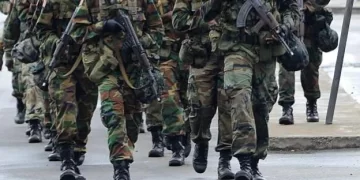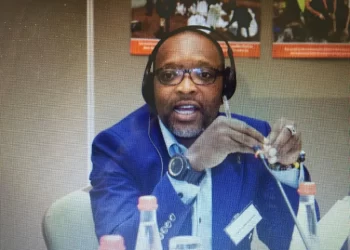The Cape Coast Teaching Hospital has recorded a significant drop in blood donations at the facility in the wake of the Covid19 pandemic.
According to the Chief Executive Officer of the National Blood Service (NBS), Dr. Justina Kordai Ansah, the total blood collections declined by 21% from 73,063 units recorded between January to May 2019 to 57, 268 units over the same period this year.
A blood donor organiser at the Cape Coast Teaching Hospital, Mr Samuel Quarmen says the blood bank at the Cape Coast Teaching Hospital has also been adversely affected due to the pandemic.
He explains that voluntary donations have declined by 90 per cent due to fear of donors contracting the virus after a donor visits health facilities.
Read this too: Government extends incentive package for front line health workers
According to Mr Quarmen, “Before covid-19 came most of us could freely walk into health facilities to donate voluntarily for patients use but now the fear is that I might pick covid-19; take it back home and infect my relatives or family members.”
But Mr. Quarmen assures that the virus does not pose any known risk to blood donors during the donation process and has therefore encouraged people to donate blood to replenish stocks without fear of contracting Covid19.
Related: ‘Superstition, major hindrance to voluntary blood donation’ – CEO
Mr Quarmen said “The best way for us as human beings is to prepare for any eventualities. In life, we are advised to save so that in the future we can fall on those savings. It is just like donating blood. We are encouraging people to come and donate, we might not know when we will need a unit of blood to save our lives.”
At the commemoration of this year’s World Blood Donor Day held in Accra, the World Health Organisation Country Representative in Ghana, Dr. Neema Rusibamayila Kimambo said, at WHO, efforts are being made to explore partnership with facebook to set-up a regional blood donation feature and already, 15 countries have expressed interest in piloting the initiative.
The partnership, according to her, when fully operationalised, will connect blood donors with nearby opportunities to donate blood in collaboration with approved blood banks.



























